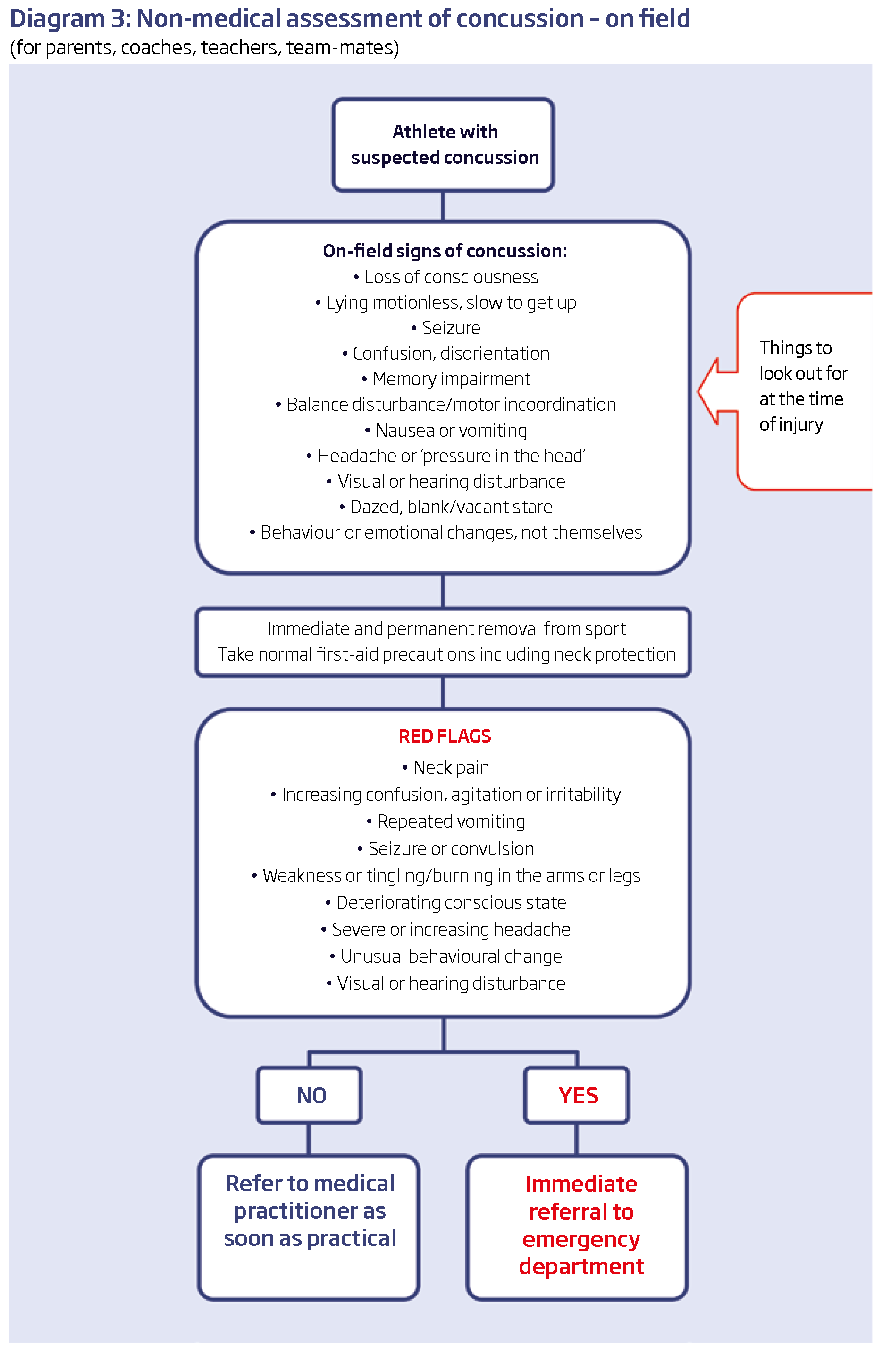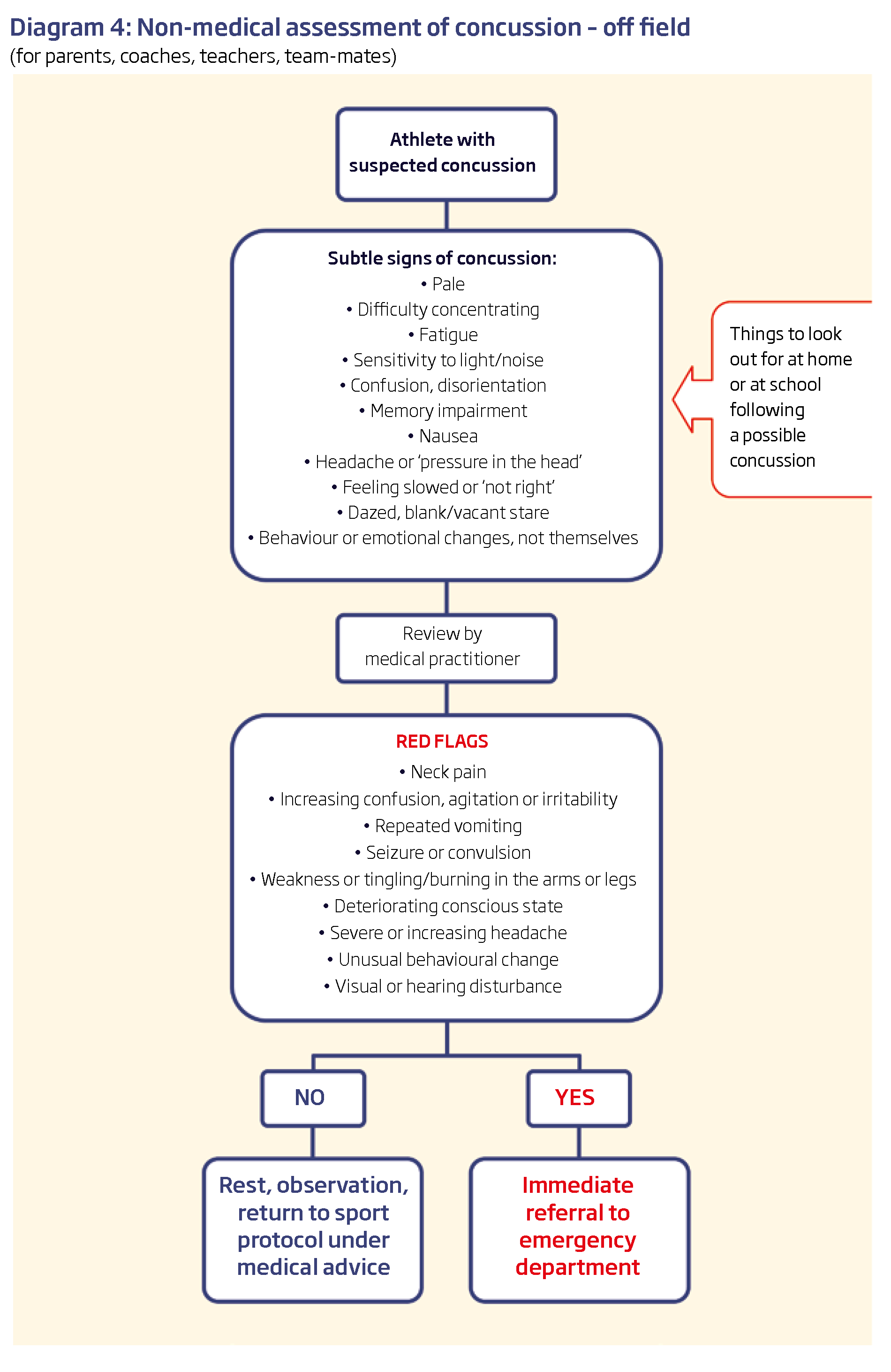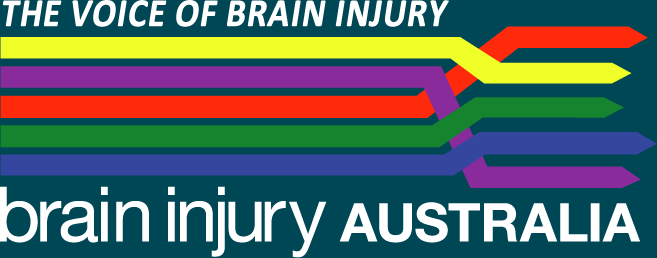Recognising mild TBI
Recognising mild TBI can be difficult
Recognising mild TBI is critical to correct management and prevention of further injury.
However, the symptoms and signs are variable, non-specific and may be subtle.
Onlookers should suspect a mild TBI when an injury results in a knock to the head or body that transmits a force to the head.
A hard knock is not required, mild TBI can occur from relatively minor knocks.
There may be obvious signs of mild TBI such as loss of consciousness, brief convulsions or difficulty balancing or walking.
However, the symptoms of mild TBI can be more subtle.
There are two tools developed by the Concussion in Sport Group to help people assess whether someone has sustained a concussion (mild TBI) - see the Tabs: At the time of Injury and Following an Injury.
Symptoms
Symptoms one might see include:
- headache
- ‘don’t feel right’
- ‘pressure in the head’
- difficulty concentrating
- neck pain
- difficulty remembering
- nausea or vomiting
- fatigue or low energy
- dizziness
- confusion
- blurred vision
- drowsiness
- balance problems
- sensitivity to light
- more emotional
- sensitivity to noise
- irritability
- feeling slowed down
- sadness
- feeling like ‘in a fog’
- nervous or anxious
- trouble falling asleep (if applicable)
Immediate signs
Some of the more immediate signs one might see that would make one think a person has sustain a mild TBI are:
- loss of consciousness
- no protective action taken by the person in a fall to ground
- impact seizure or tonic posturing
- confusion, disorientation
- memory impairment
- balance disturbance or motor in-coordination (e.g. ataxia)
- person reports significant, new or progressive concussion symptoms
- dazed, blank/vacant stare or not their normal selves
- behaviour change atypical of the person.
.


